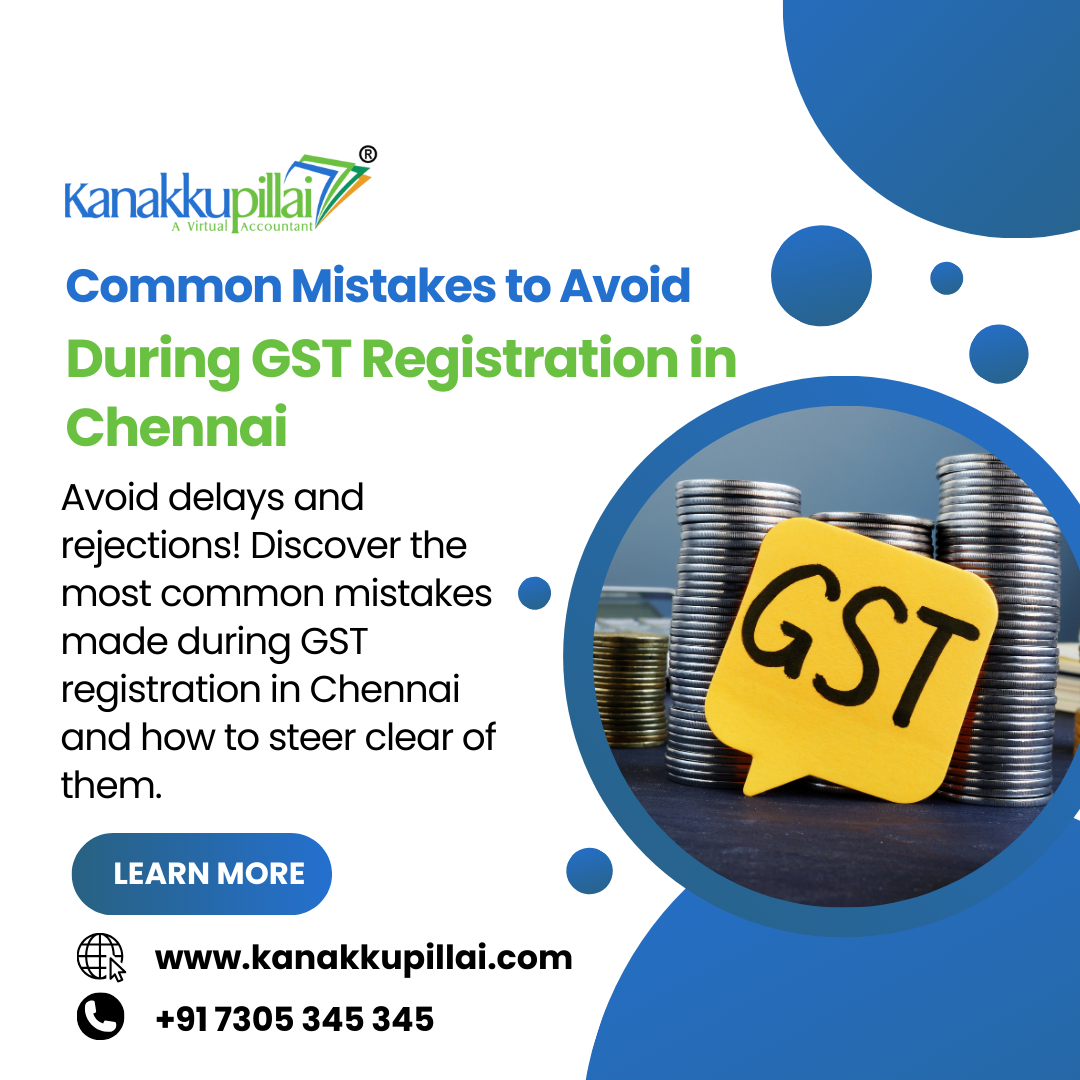Introduction
Navigating GST registration in Chennai can be daunting for many businesses. Given the complexities of the Goods and Services Tax (GST) system, it's crucial to avoid common pitfalls that can lead to delays and complications.
Understanding GST Registration
GST registration is mandatory for businesses with an annual turnover exceeding a specified threshold. It allows companies to collect tax from customers and claim input tax credits. In Chennai, as in other parts of GST in India, the process is governed by specific rules and regulations that must be adhered to.
Importance of GST Registration
- Legal Compliance: Ensures your business operates within the legal framework.
- Input Tax Credit: Allows businesses to claim credits for taxes paid on purchases.
- Business Credibility: Enhances your business's reputation among customers and suppliers.
Common Mistakes to Avoid
1. Incorrect Information Submission
One of the most prevalent mistakes during GST registration in Chennai is providing incorrect or incomplete information. This can include:
- Wrong PAN Details: The Permanent Account Number (PAN) must match the business entity.
- Inaccurate Address: Ensure that the registered address is correct and matches official documents.
2. Not Understanding the Threshold Limit
Many businesses need help understanding the turnover limit for mandatory registration. As of now, companies with a turnover exceeding ₹20 lakhs (₹10 lakhs for particular category states) must register. Failure to do so can lead to penalties.
3. Ignoring Required Documents
Before applying for GST registration, ensure you have all necessary documents ready, including:
- PAN Card
- Proof of business registration
- Identity and address proof of promoters
- Bank account statement
Missing documents can delay your application significantly.
4. Choosing the Wrong Type of Registration
Businesses often overlook the different types of GST registrations available, such as:
- Regular Registration: For most companies.
- Composition Scheme: For small businesses with a turnover below ₹1.5 crores.
Choosing incorrectly can affect your tax liabilities and compliance requirements.
5. Not Updating Registration Details
Once registered, it's essential to keep your GST details updated. Failure to do so can result in penalties or cancellation of registration. Common updates include:
- Change of business address
- Change in business structure
- Changes in authorised signatories
6. Overlooking Compliance Requirements
After obtaining GST registration, businesses must comply with various requirements, such as:
- Timely filing of GST returns
- Maintaining proper records
- Issuing GST-compliant invoices
Neglecting these obligations can lead to fines and legal issues.
Steps for Successful GST Registration
To ensure a smooth registration process, follow these steps:
Step 1: Gather Required Documents
Compile all necessary documentation before starting your application.
Step 2: Visit the Official GST Portal
Access the official GST portal and create an account using your email ID and mobile number.
Step 3: Fill Out Form GST REG-01
Complete Form GST REG-01 with accurate details about your business.
Step 4: Submit Required Documents
Upload all required documents as per the guidelines provided on the portal.
Step 5: Receive ARN
After submission, you will receive an Application Reference Number (ARN) to track your application status.
Step 6: Await Confirmation
The authorities will verify your application within three working days. If approved, you will receive your GSTIN (Goods and Services Tax Identification Number).
Conclusion
Avoiding these common mistakes during GST registration in Chennai is vital for ensuring compliance and the smooth operation of your business. By understanding the requirements and preparing adequately, you can navigate this process successfully. Always stay informed about changes in regulations and seek professional advice if needed.
Additional Tips for a Smooth Registration Process
- Consult Professionals: If you need clarification on any aspect of the registration process, consider consulting a tax professional or a GST consultant.
- Stay Updated: Regularly check for updates regarding GST laws and regulations to ensure compliance.
- Use Reliable Resources: Leverage online resources and platforms that guide GST registration processes.
By following these guidelines, you can effectively manage your GST registration in Chennai, minimising errors and ensuring compliance with all legal requirements.





Comments